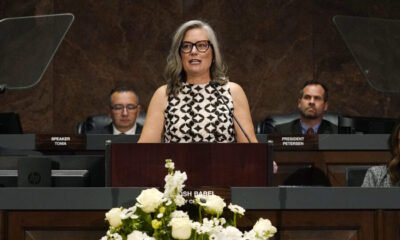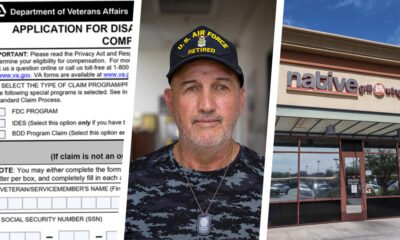apprenticeships
2024 Sees Limited Success for Apprenticeship Bills, Unfinished Business Awaits

During the 2024 legislative session in Arizona, lawmakers focused on several apprenticeship-related bills, with only a few gaining the governor’s approval. Plans are underway to reinstate measures that failed to pass this year.
Among the successful initiatives was House Bill 2090, signed by Gov. Katie Hobbs. Proponents argue that this law enhances the value of apprenticeship certificates, enabling Arizona contractors to transfer their credentials across state lines.
Spearheaded by Rep. Laurin Hendrix of Gilbert, the bill garnered unanimous support from the legislature. The new regulation allows individuals who complete accredited apprenticeship programs or their sponsors to file a completion certificate with the Arizona Registrar of Contractors, the state’s licensing and regulatory body for contractors.
Barry Aarons, a lobbyist for the bill, explained its significance at a House Commerce Committee hearing. He stated, “Electricians aren’t licensed in our state. Qualifying parties are, so if an electrician wants to move to another state, they will now have documentation on file with the Registrar of Contractors proving their qualifications.”
Additionally, Aarons highlighted the consumer protection aspect of the legislation, noting that it allows consumers to verify the contractor’s certification status.
Another notable bill, House Bill 2885, sponsored by Rep. Alma Hernandez of Tucson, aimed at facilitating travel for individuals on probation to reach apprenticeship job sites. Undercurrent regulations, probationers must remain within their jurisdiction and seek approval to travel, a process that can be time-consuming.
This proposal was met with broad bipartisan support in the House, passing through committee unanimously and later on the floor with a 56-3 vote. Rep. Justin Heap of Mesa emphasized its potential to reduce recidivism by promoting gainful employment post-incarceration, stating that job training in a monitored environment is crucial.
However, HB2885 was stalled in the Senate after it was assigned to the Judiciary Committee, chaired by Sen. Anthony Kern of Glendale, who did not move forward with any hearings. Hernandez expressed her belief that Kern’s decision was politically motivated.
Looking ahead, Hernandez remains optimistic about the bill’s prospects in the next session, especially with Kern’s recent primary loss. “It was a great bipartisan bill that recognized the importance of providing opportunities for individuals striving to avoid returning to prison,” she stated.
Another apprenticeship initiative, HB2829, introduced by Rep. Seth Blattman, also faced challenges. This bill sought to mandate a regulatory authority to set criteria for apprenticeship licenses, ensuring applicants had completed their training at approved institutions. Unfortunately, it did not receive a committee hearing.
Similarly, Sen. Flavio Bravo introduced a parallel measure in the Senate, which faced the same fate, remaining unheard in committee. Additional apprenticeship-related bills filed by two other Democratic lawmakers never gained traction either.


















